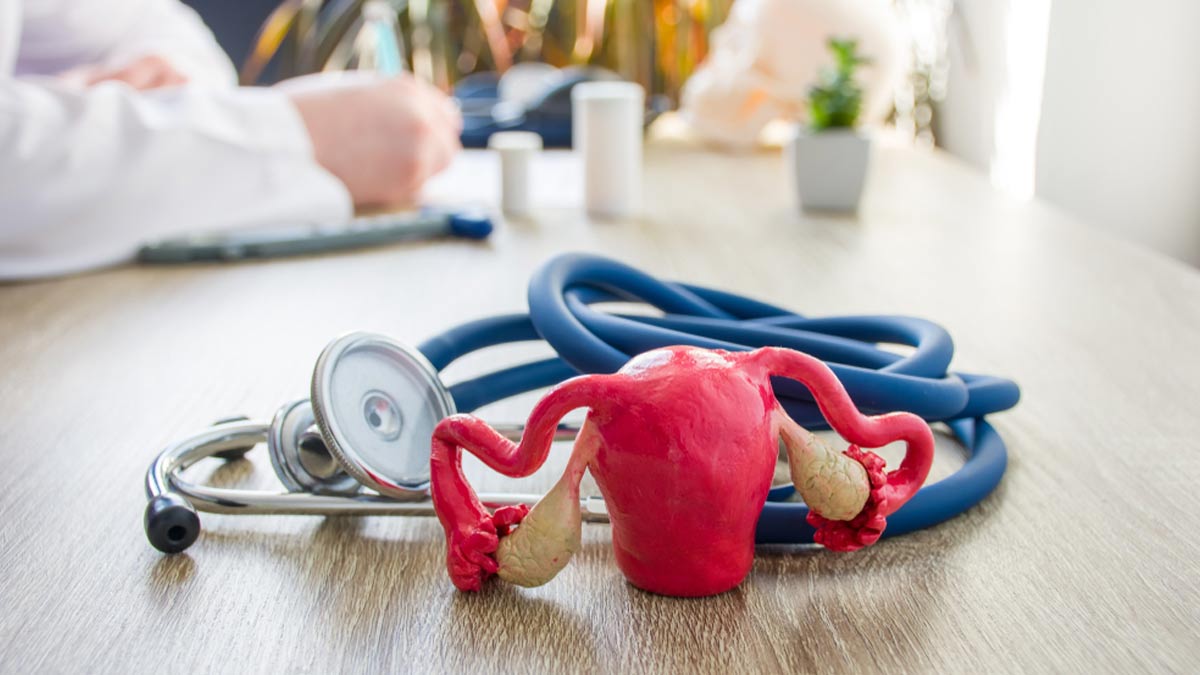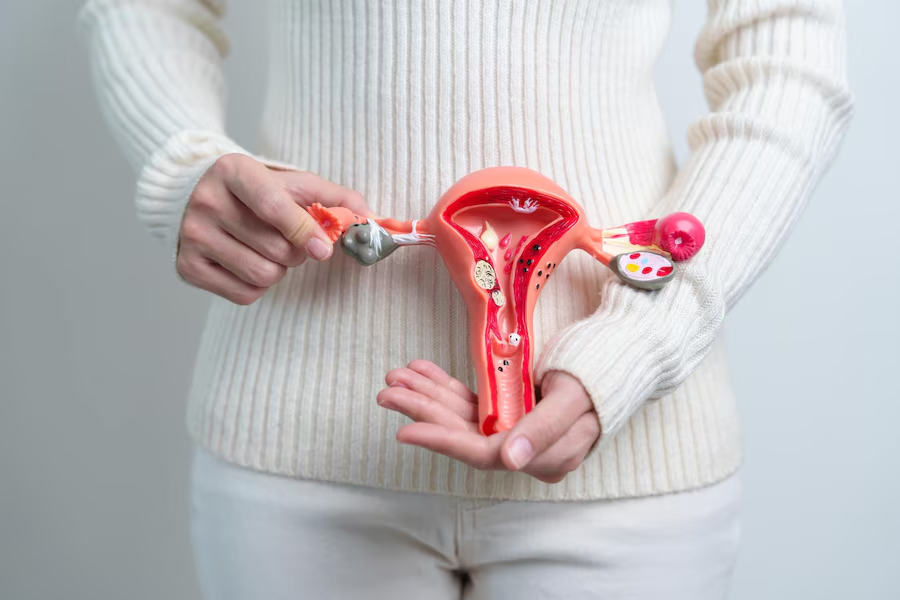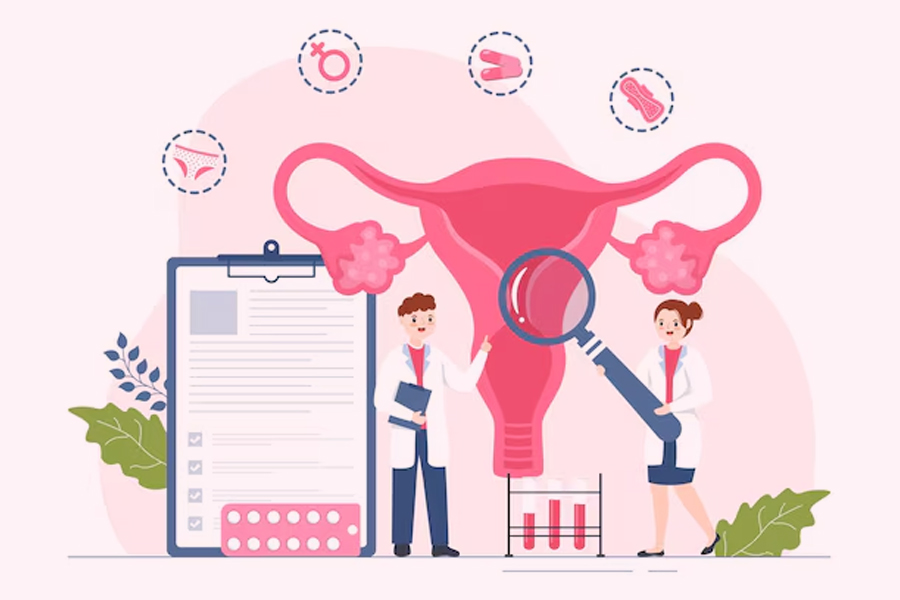
Many women may not think much about their uterus until something feels off. For some, an enlarged uterus can be a silent issue, but for others, it can bring a host of uncomfortable symptoms that disrupt daily life. You might find yourself feeling a sense of heaviness in your pelvic area, struggling with abnormal bleeding, or even making more trips to the bathroom than usual. These changes can be confusing and frustrating, leading you to wonder what’s going on inside your body. We spoke to our expert Dr Indrani Salunkhe, Obstetrician and Gynaecologist, Wockhardt Hospitals Mumbai Central, who explained the causes and treatments for an enlarged uterus are essential for anyone experiencing these symptoms.
Table of Content:-
Recognising the Symptoms Of Enlarged Uterus

An enlarged uterus is a condition where the uterus becomes larger than its normal size, often due to underlying health issues.
"Common symptoms include pelvic pain or pressure, as the enlarged uterus can cause feelings of heaviness in the pelvic area. Abnormal menstrual bleeding, such as heavier or prolonged periods, or spotting between periods, is also frequently reported," said Dr Salunkhe.
Additionally, frequent urination can occur when the uterus presses against the bladder, and bloating or constipation may result from pressure on the intestines. Lower back pain is another common symptom due to the strain placed on nearby structures like the spine.
Also Read: Growth In The Uterus Isn't Always Cancerous: Here's What It Commonly Means
Causes Of Enlarged Uterus
There are several causes of an enlarged uterus. Here are some causes, as listed by the expert:
Fibroids

Fibroids, which are non-cancerous growths in the uterus, are the most common cause. These growths can vary in size and number, contributing to the enlargement. As reported by the Office on Women’s Health (OWH) under the U.S. Department of Health and Human Services, between 20-80% of women develop fibroids before reaching 50. These growths are most frequently observed in women in their 40s and early 50s.
Adenomyosis
"Adenomyosis is another condition that can lead to an enlarged uterus. This occurs when the tissue lining the uterus grows into the uterine wall, causing thickening and enlargement. Women with adenomyosis often experience significant pelvic pain and heavy menstrual bleeding, which can severely impact their quality of life," added Dr Salunkhe.
Endometrial Cancer

In some cases, endometrial cancer may also result in an enlarged uterus, signalling the presence of cancerous cells in the uterine lining. While this is less common than fibroids or adenomyosis, it is a critical condition that requires prompt attention and treatment.
Pregnancy
During pregnancy, the uterus naturally enlarges as it accommodates the growing foetus. This expansion is a normal and healthy part of pregnancy, but it is important for women to differentiate between normal changes associated with pregnancy and potential health concerns.
Also Read: Diabetes May Cause Uterine Cancer Says ICMR: Tips To Control, Manage Blood Sugar Levels
Treatment For Enlarged Uterus
The treatment for an enlarged uterus largely depends on the underlying cause.

- In cases of fibroids or adenomyosis, doctors may recommend medications, hormone therapy, or surgical procedures, such as myomectomy (removal of fibroids) or hysterectomy (removal of the uterus) for more severe conditions.
- Minimally invasive procedures like uterine artery embolisation can also be effective in reducing symptoms.
- For cases involving cancer, treatment usually involves surgery, chemotherapy, or radiation.
Bottomline
Dr Salunkhe concluded, "An enlarged uterus can lead to a range of symptoms and may indicate underlying health issues that require attention. Women experiencing unusual symptoms, such as pelvic pain, abnormal bleeding, or frequent urination, should not hesitate to consult a healthcare professional. Early diagnosis and treatment are crucial in managing symptoms and preventing complications. It is essential to consult a healthcare professional if you experience any unusual symptoms."
[Disclaimer: This article contains information provided by an expert and is for informational purposes only. Hence, we advise you to consult your own professional if you are dealing with any health issues to avoid complications.]
Also Read: World Mental Health Day 2024
Also watch this video
How we keep this article up to date:
We work with experts and keep a close eye on the latest in health and wellness. Whenever there is a new research or helpful information, we update our articles with accurate and useful advice.
Current Version